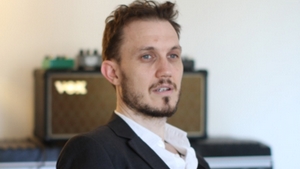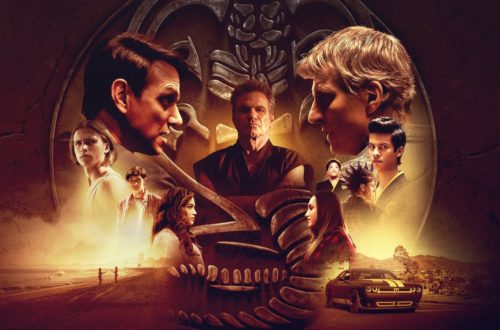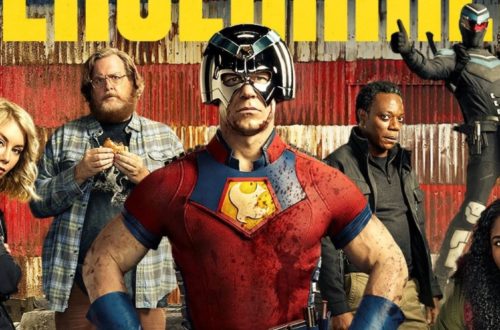 Elliott Wheeler is a Sydney based composer, producer and founder of Turning Studios. Classically trained, he studied composition and brass studies at the Sydney Conservatorium of Music, and Philosophy at Sydney University. Since then, he has worked continuously as a screen composer and producer across a broad spectrum of genres from studio releases to film, documentary, commercials, and theatre.
Elliott Wheeler is a Sydney based composer, producer and founder of Turning Studios. Classically trained, he studied composition and brass studies at the Sydney Conservatorium of Music, and Philosophy at Sydney University. Since then, he has worked continuously as a screen composer and producer across a broad spectrum of genres from studio releases to film, documentary, commercials, and theatre.
For over a year he worked on the soundtrack for Baz Lurhmann’s The Great Gatsby, collaborating on material from all of the film’s artists, from Jay Z, Florence + the Machine, Lana Del Rey, Jack White, will.i.am, Bryan Ferry and his Jazz Orchestra, Emile Sande and Kid Koala, Fergie, Q Tip and Goon Rock, as well as providing original additional music for the film. Wheeler’s currently working on the soundtrack for the new George Miller Mad Max film, Fury Road, as well as Rob Conolly’s adaption of Tim Winton’s “The Turning” – a collection of eighteen short films directed by diverse range of artists and directors including Cate Blanchett, David Wenham and Mia Wasikowska, among others.
In the midst of Elliot’s recent film endeavors, his debut studio album, “The Long Time” was released in May. Compiled from hand picked tracks of his extensive body of work with some of Australia’s best singers, each track is inspired by some of Elliot’s favorite scenes from his most loved 60s and 70s films.
This week The Great Gatsby hits Blu-Ray shelves (read our review here) and we caught up with Elliott to talk about his work on Lurhman’s film as well as his upcoming work in George Miller‘s Mad Max film Fury Road. Below are the highlights from our time with him.
——————————————————————————————————————————-
– The Great Gatsby seems like an enormous collaboration. How long was the process? Who chose/assembled them and how much time did you spend with each artist?
Our personal involvement was close on a year, but Baz, Anton Monsted (music supervisor/
co-producer) and Jay Z had been working on the concepts and possible artists they wanted to be involved for much longer than that. Baz is incredibly passionate about music and it factors into his very conception of the film from the beginning of the process.
– How was the process working with the film’s composer Craig Armstrong?
Craig is an incredible musician and lovely human being to be around. He came out to Sydney to work with Baz at the early stages of the edit and came over to the studio to
do some initial sketches, almost like a silent film play through as he watched the images. He has such an innate musicality, it was amazing just to see the themes comes flowing out as he played along. Also wonderful was then getting to see the orchestral recording sessions of his music over at Air Lyndhurst in London. There are a lot of artists involved musically in the film, but Craig’s score is the heart of the story. Everything else hangs off that. It was an education to see in particular how he paints with his orchestrations. Things shift and morph just by the way he moves his arrangements around the orchestra, and it’s incredible how much he could influence the picture just by the subtle changes. It as fantastic to watch.
– What the process for developing and tailoring a sound to a style of modern musicians to something that’s no longer current? What kind of research do you do or from whom do you take inspiration?
The weave of period and contemporary styles was something we spent a long time on. It was one of things that Baz first brought up with Jay Z in their initial conversations and one of the aspects that got Jay really excited for the project. Baz wanted to give the modern audience the sense of what it would have been like to enter one of Gatsby’s parties as a contemporary, wanted people to understand that the jazz playing at the time was the most exciting music of it’s era, the most dangerous, in the same way that dance and Hip Hop are now. And one of the best ways to do that was to interweave the period style recordings directly back into the modern tracks.
It meant doing entire recordings of nearly all of the songs, then working with Baz to figure the best way to intertwine the two to get the balance of era vs excitement, and then working out as well how to make that sit against Craig’s incredible score. It was a great challenge.
There were a bunch of stylistic areas we researched in terms of the period music – Louise Armstrong, Bix Beiderbeck, Paul Whiteman and his Orchestra, Jelly Roll, and a bunch of others. It was a wonderful challenge to be able to take so much of the modern music and create period versions of it. Another massive part of the sound of the film is Bryan Ferry’s Jazz Orchestra. We went over and worked with Bryan and his orchestra in London after Baz heard Bryan’s Jazz AgeAlbum. Those players were amazing, and so authentically devoted to that era of music. And Bryan and his engineers were obsessive about recording the music in a technical way would be true to the era. Add to that Bryan’s voice and production and you have something very special.
– It’s no big secret that Baz is very much into music. So where does his vision and input stop and yours begin? With so much that he does as a director, how much does he oversee and how much does he leave to your control?
Baz is super involved in the music at all times and at all levels. He’s across the edits, the music selection, the mix, the recording. He and Anton have an extremely close relationship and understand each other very quickly on where the music needs to go, so we’re all working together very closely. But Baz, Anton and Jay would have very clear ideas about what the music would need to do and were extremely articulate in getting that across. Then they’d leave you to make it happen, then come back at a later stage and get involved again. It was an extremely collaborative process, and very early on it was encouraged that we should experiment as much as possible.
– Let’s switching gears to what you’re currently working on. George Miller’s Mad Max Fury Road. Mad Max in an inherently Aussie film series. Did you grow up with it? Seems like this film has for years had trouble getting off the ground but once things were finally in motion what were your initial thoughts getting on board?
I’ve loved Mad Max since being a kid, and it’s amazing the response you get when people start talking about it. It really resonates. Every film has some sort of issue in its development, so I was just thrilled to be asked. George Miller and everyone in the team with has been wonderful to work with. It’s just fantastic working with someone who understands the story telling so well and who understands each element of the process so thoroughly. It’s really just a thrill to be a small part of such an iconic story.
– How and when did you become involved with Fury Road and in general do you read scripts, just the treatments or only start writing when the film’s being edited and mixed?
I got involved with Fury Road to help with early internal screenings, working with George and Margaret Sixel (editor) to help put together the musical palette for the film. In general it just depends on the project. It’s great if you can get in early as you can help shape what the final mood of the work might be, and that way you don’t have material coming back at you that you feel doesn’t fit the tone of the movie. But sometimes you just get given something close to the final cut. It just depends on the project. I love getting to read the scripts as well, I think it helps to understand where the director is coming from.
– What were some of the things George was looking for from you early on? And aside from your music can you tell us what we’re in store for as far as the story and the world Miller is creating?
Sadly, no. Can’t really talk about any of that…they know where I live. *laughs* But it’s a great film, and if you’re a Mad Max fan you won’t be disappointed.
– Ok, fine, nice side step there Elliott. So let’s get to your album which inspired by scenes from your favorite films. Can you name some of your favorites to work on? Also any that you started writing for that didn’t make the cut or might appear on a follow up album?
I used a bunch of different films to draw inspiration from. I wouldn’t necessarily try and score to picture, it was more taking a feeling, a look, a mood, and using that as a starting point. There’s a look between Bonnie and Clyde just before they’re ambushed that’s just heartbreaking, loving, fully aware, lacking in regret, that became the basis for the piece called The Warning. Others were Chinatown, The Sting, Dog Day Afternoon, The Conversation. I drew different things from each of them. And yes, there were a few that didn’t make the cut. We’ll see if they make it onto an album at some stage.
– Being a composer means you have to be somewhat familiar with all different styles. But do you have a certain style that either is your favorite or once that really defines you?
I find it changes really depending on the project you’re working on. You go through stages of different styles, different things that inspire you. You have to, I think, to stay fresh. But when you’re working so intensely on a project for a large period of time, you tend to go fairly deep into that world. For example, on Gatsby we were obviously spending a lot time writing 20’s style jazz, and you get into the modalities and particularities of that idiom. But even within that project, you’d then jump to programming or arranging on a Jay Z track, so you’re constantly accessing different musical languages.
But I guess if I have things I come back to things I play for myself, it’s often jazz or classical. That’s probably where I can disappear most easily.
– Since you have significant influence and ownership of the auditory parts of The Great Gatsby, I want to know if you can help clear up a little trade terminology. When a soundtrack reads “Music from and inspired by the motion picture (Blank)” is it simply X number of songs were written in collaboration with a film’s composer and the others were simply source music that you, the director or producers wanted in the film? What’s the breakdown?
I don’t think there’s a hard and fast answer to that, it depends on the album, but that seems to be the usual breakdown. If you’re looking for material that was written specifically for the film, it will normally come under “original soundtrack”. That said, all of the music on the Gatsby soundtracks (there’s more than one) was actually used in the film, and heavily crafted to work specifically for the project.
——————————————————————————————————————————-



